Ever since I changed my major to Communication, I am very critical of the messages sent through media. I enjoy breaking down content and analyzing what messages are communicated to audiences. There are a lot of negative stereotypes that still exist that media has contributed to. People learn from the content they are exposed to. Representation issues within media are common. Collective groups have been and, in some cases, still are portrayed in a way that is not accurate. Inaccurate or negative portrayals can impact how people view themselves or others.
I was very excited to see the movie Joker because I wanted to see how the producers represented mental health. I think it was executed well and the movie sent several important messages about mental health to the audiences.
Mental Health Issues ARE Real
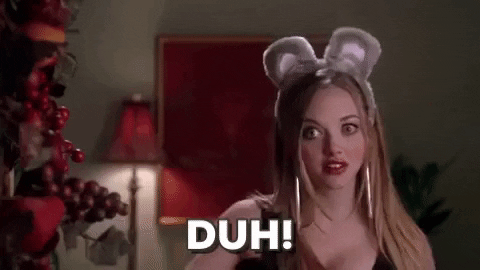
https://giphy.com/gifs/filmeditor-mean-girls-movie-3o7aTFGDkPnF3ETgiY
I can't believe I had to include this, but yes, there are still people who don't believe mental health issues exist. According to the World Health Organization and John Hopkins Medicine, mental illness affects one in four people.
Joker provides an understanding of what goes on in Arthur's mind.
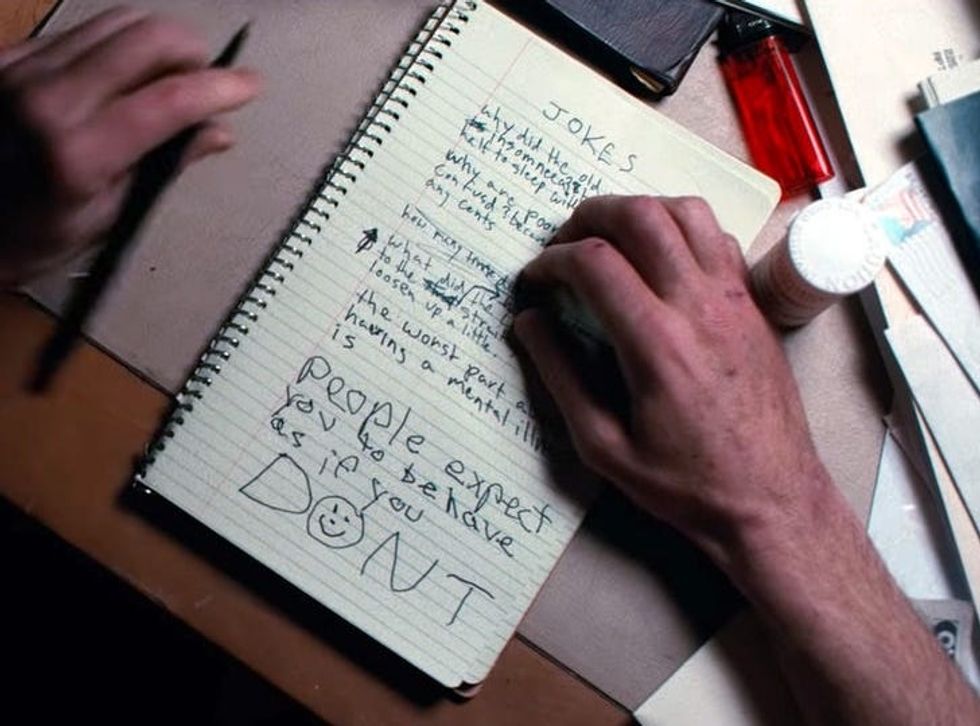
Insider
The movie showed the main character, Arthur, and his perception of the world in a very raw way. The audience is able to follow his thoughts as well as identify the scenarios he creates and sees in his head. You can feel his struggle. You can feel his strong emotions along with his lack of control. Many viewers around the world were storming out of theaters when the movie first aired. People said it was too dark, too disturbing, and that they were too uncomfortable due to the content of the movie. I can understand leaving if someone was terrified. Some parts were very difficult to watch. However, Arthur's dark mind isn't a foreign concept to some people because that way of thinking is their real life. It is so important for mental health to be represented in an accurate and real way. This allows people to understand behavior and where it comes from. Mental health issues to Arthur's extent aren't portrayed often in the media. The battles he faces daily were represented in a clear and powerful manner. Arthur writes in his journal that the worst part about having a mental illness is people expect you to behave as if you don't. That shows the lack of awareness and understanding that exists surrounding mental health.
Not everybody has access to getting help.
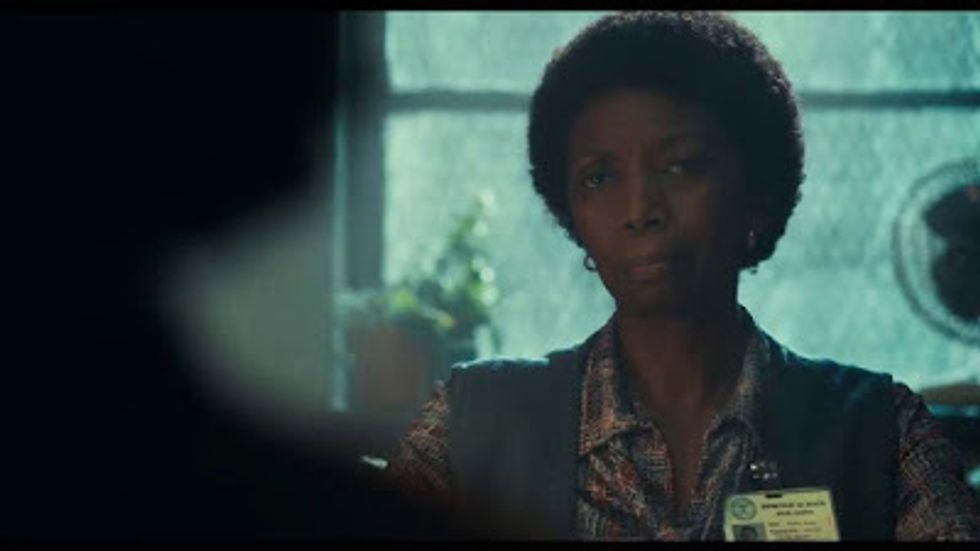
The Geek Twins
Arthur is shown speaking to a social worker in the beginning of the film. He met with her weekly until the city cut funding for social services. Arthur was shocked when she told him that they would no longer be meeting. He was very concerned about where he was going to get his medication and who he was going to talk to because both of those things were just taken away from him. Mental health resources are lacking. Mental health services are expensive. Medication can be expensive. Not everybody can pay to speak to somebody and sometimes there aren't other options for those people. Treatment cost is high and insurance coverage may be insufficient. A recent study conducted by The National Council for Behavioral Health confirms the root of our mental health crisis is lack of access or the inability to find care.
Therapy is so important and necessary for some people.
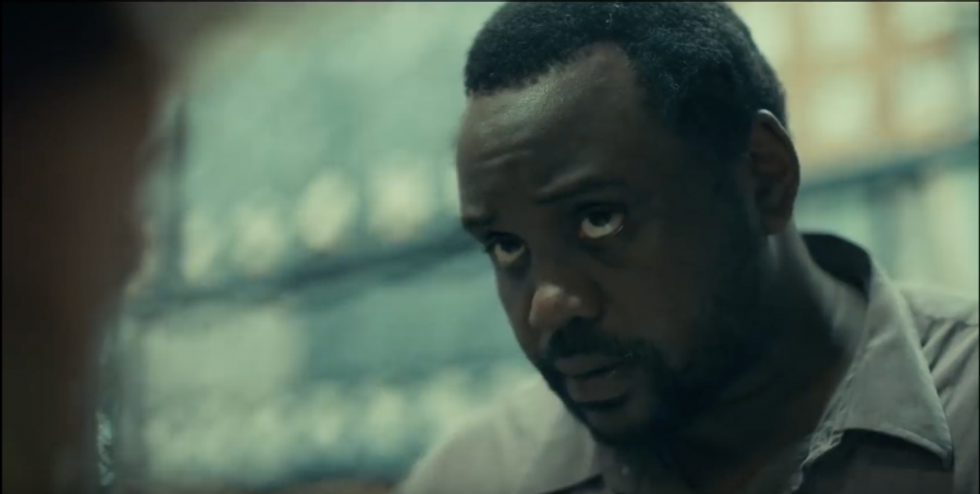
okayplayer.
Going to that session once a week may be what is getting you to the next week. In Joker, it is proven how essential therapy can be. When Arthur goes looking for paperwork at Arkham State Hospital, he shows how badly he needs someone to talk to when he starts opening up to the clerk. Arthur got very personal and discussed his crimes in front of this man. Arthur talks about how it is so hard to try to be happy all the time. The clerk was clearly in shock and didn't know what to do. He told Arthur that he is just an administrator assistant, a clerk filing paperwork, but Arthur should see someone. Regardless of how the therapy sessions were initially depicted, it is easy to see that they are necessary once they have been taken away from Arthur.
WORDS MATTER!!
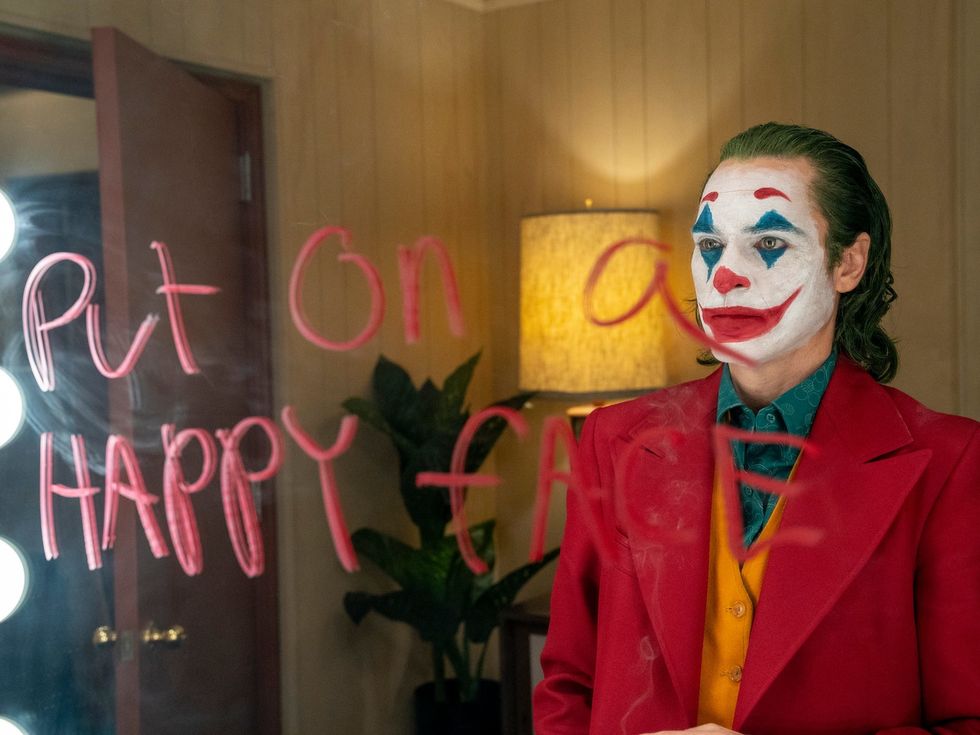
Variety
Words have so much power. How you treat and speak to others matters. When nasty and negative comments are directed at Arthur, it is very easy to see cause and effect reactions. He gets violent. I am in no way saying that violence is condoned if someone talks down to you, but I am saying that how you choose to speak to people does impact them and their behavior. Words can make a difference. Arthur's coworkers were yelling at him saying nasty things and he punched the "punch out machine" until it fell off the wall. Arthur was extremely hurt after hearing Murry Franklin make fun of him on his show. He was heartbroken when his mother asked him, "don't you have to be funny to be a comedian?" These words impacted his mental state which then influenced his behaviors. He feels less and less important as the movie goes on.
After killing one of his coworkers, Randall, Arthur looks at his other coworker, Gary, in the corner of the room. He tells him that he can leave. Before Gary walked out the door, Arthur tells him that he's the only one that was ever nice to him and kisses his head. Arthur is continuously put down in many ways and eventually feels that he is invisible and has nothing left to lose. How Gary treated Arthur clearly made a difference in Arthur's mind. Again, the power of words.
We need to do more.
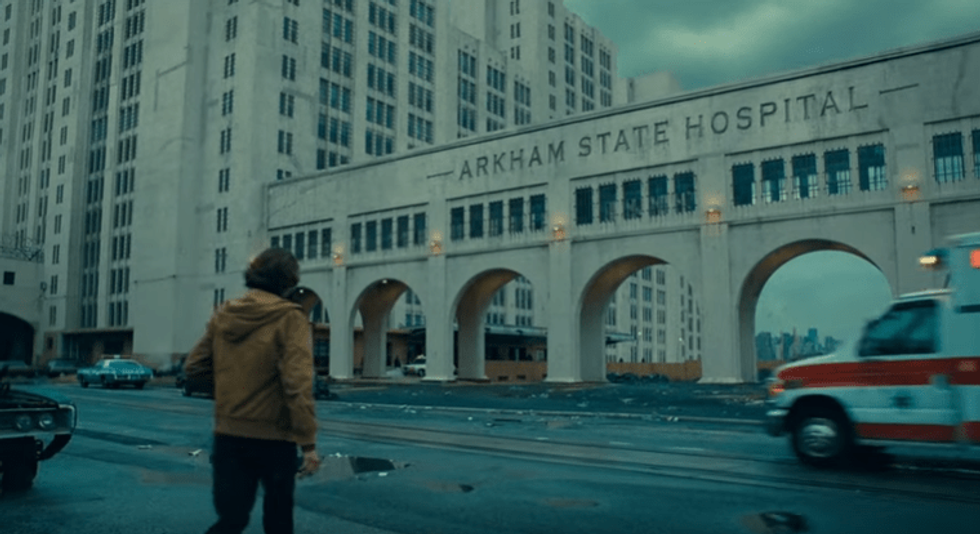
Global Film Locations
In one of the more brutal scenes, Arthur shoots Murry Franklin in the face live on his television show. He says, "what do you get when you cross a mentally ill loner with a society that abandons him and treats him like trash?" In my opinion, this was the most powerful line in the movie. As a society what are we doing for those who are mentally ill? How are we helping these people? Arthur discusses how nobody thinks about what it is like to be the other guy. He mentions Thomas Wayne, a wealthy popular candidate running for mayor, and asks Murry, "you think men like Thomas Wayne ever think about what it's like to be someone like me? To be somebody but themselves? They don't." When talking about the three young men he shot on the subway, Arthur says that if it was him dying on the sidewalk, people would walk right over him. People pass him every day and don't notice him.
At the end of the movie, a cop says to Arthur that the whole city is on fire because of him. He responds, "I know, isn't it beautiful". This is the first time Arthur felt noticed and acknowledged by society. Acknowledgement is so important. Acknowledging people's existence and how they experience life matters. If we don't acknowledge people, we can't understand what their needs are or what we as a society can do to help. If we can't see people, we certainly can't hear them.
Concluding Thoughts

Esquire
There is a lot of criticism surrounding Joker due to the connection between mental health and violence. The criticism is more intense because of what is going on in the world right now. However, it's a matter of perception. You can choose how you want to view this movie. Sure, it is scary. It shows gun violence, riots, literally the world going to shit. It is extremely dark. There have been more and more mass shootings over the years which can raise ethical concerns when producing this content, but that can also be a reason why it is so important for people to see that content. This violent behavior is not being justified nor promoted. It is intended to bring a new understanding of a subject, mental health, to an audience. According to the U.S. Department of Health and Human Services, only 3-5% of violent acts are correlated to individuals with serious mental illnesses. The movie didn't have to be as violent as it was, but it is showing the extremity of mental illness, which people need to understand. When I say that you can choose how you want to see the movie, you kind of have to make your own interpretations. The end implied that Arthur is back in Arkham State Hospital, but it is up to interpretation if the content of the entire movie was all in his head. There isn't much clarification between fantasy and reality and that requires viewers to think about how they want to perceive this movie and what messages they want to take with them.
Mental Health Hotline Numbers & Referral Resources:
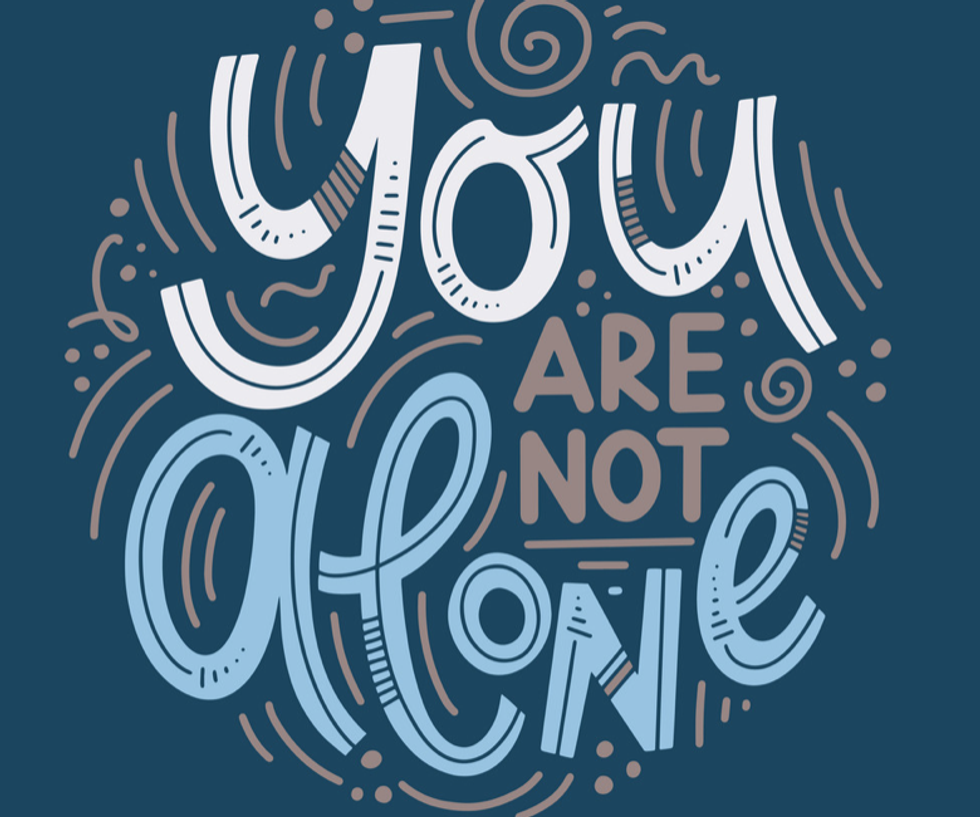
VectorStock
https://www.nami.org/Find-Support/NAMI-HelpLine/To...
♡


















